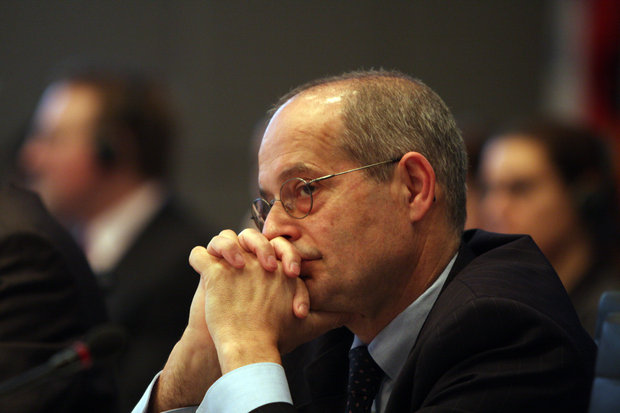Miklós Haraszti: “No changes in dismal human rights situation since presidential election” in Belarus
GENEVA (9 February 2016) – The United Nations Special Rapporteur on the situation of human rights in Belarus, Miklós Haraszti, today warned that opposition leaders, human rights activists, journalists, and many other citizens have been subjected to harassment, administrative procedures and fines since the October presidential election.
“During the last four months, no changes have been initiated in Belarus to alter the oppressive laws and practices, while numerous cases of new violations of basic rights have emerged,” Mr. Miklós Haraszti said in a Public Statement* released today.
In his statement, the human rights experts reminded that the October presidential election, just as all votes since the 1990s, “fell short of democratic standards, and the incumbent was reappointed following an unverifiable turnout and nontransparent ballot count.”
“Nevertheless”, Mr. Haraszti said, “along with intergovernmental and domestic human rights organizations, I commended that political prisoners had been released on the eve of the election. It seemed a good start that, unlike during the 2010 election, the authorities refrained from violence against political opponents, and they did not arrest the rival candidates.”
“Unfortunately, the dismal state of human rights has remained unchanged in the country,” the UN Special Rapporteur stressed.
“The authorities have not ceased the systematic harassment of those who attempted to practice their individual, civil, political, and other rights, despite the partial suspension of EU and US sanctions, decided in anticipation of further advancement of human rights,” he said. “Neither have they shown any willingness to reform the entrenched, highly oppressive legal system.”
The independent expert noted that the Government has not restored the civil political rights of the released political prisoners, and pointed out that “the politically construed criminal cases against the 2010 presidential candidate Ales Mikhalevich and journalist Aliaksandr Alesin continue, just as the imprisonment of cultural activist Mikhail Zhamchuzhny.”
“The ban on entry into the country has been upheld against Belarusian human rights activist Alena Tankachova, and no safe re-entry has been granted for those forced to leave the country due to political persecution,” Mr. Haraszti said, adding that registration of human rights organizations ‘For Fair Elections’, Viasna, and others “has been repeatedly rejected on flimsy administrative reasons.”
“Ceasing all these arbitrary persecutions would only take political will in this highly centralized system”, he said. “However, the necessary changes need go much further than a lenient approach to existing oppressive regulations. The Government of Belarus should engage in a broad reform to bring legislation in compliance with its international human rights obligations.”
The Special Rapporteur highlighted that Belarus has for twenty years been the only country in Europe where there is no opposition in parliament. Nevertheless, he said, “the forthcoming parliamentary elections in 2016 will also be an opportunity for the authorities to attest of their commitment to reform.”
“I stand ready to cooperate with the authorities to ensure that free and fair parliamentary elections lead to the formation of a strong, pluralistic legislative body. Such steps would speak for the willingness of the authorities to improve the human rights situation in the country, and to work toward abiding by international standards,” Mr. Haraszti concluded.


















